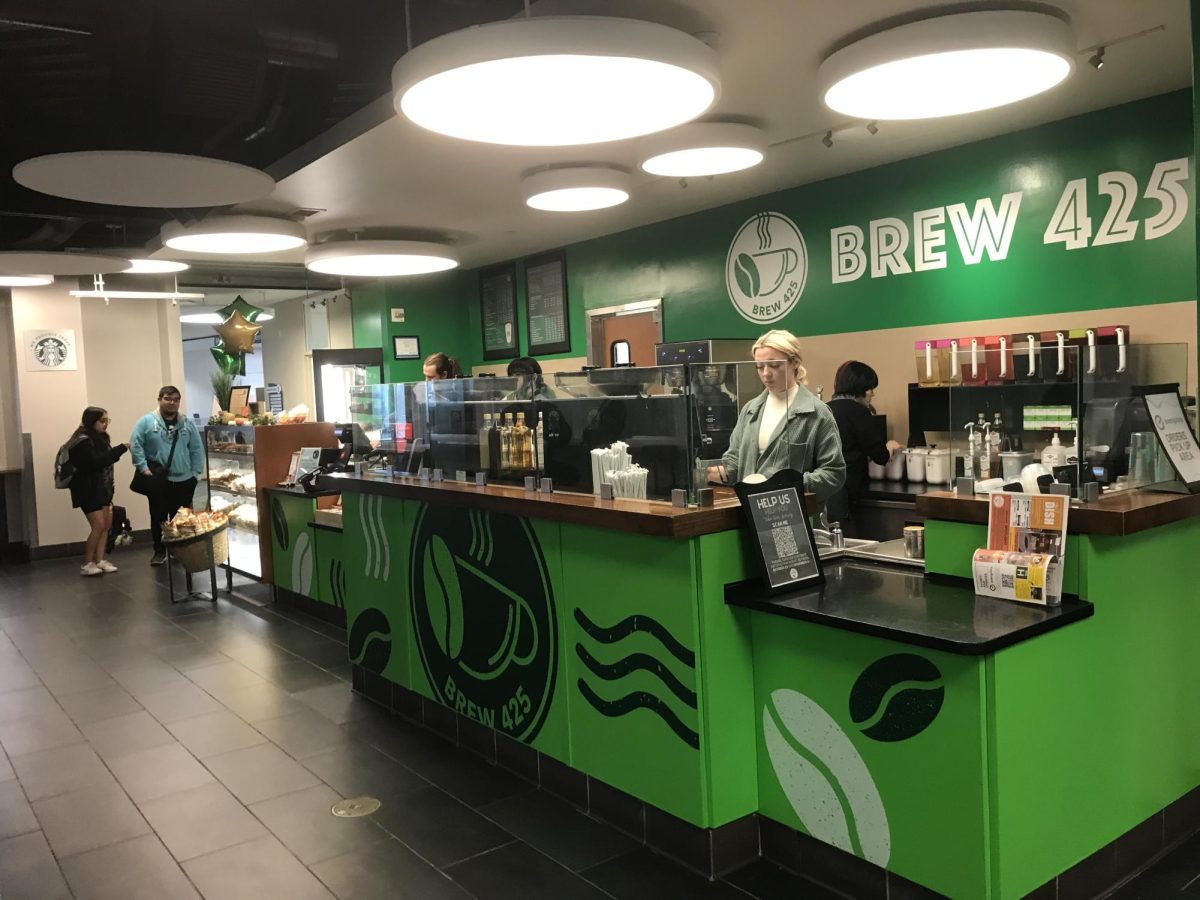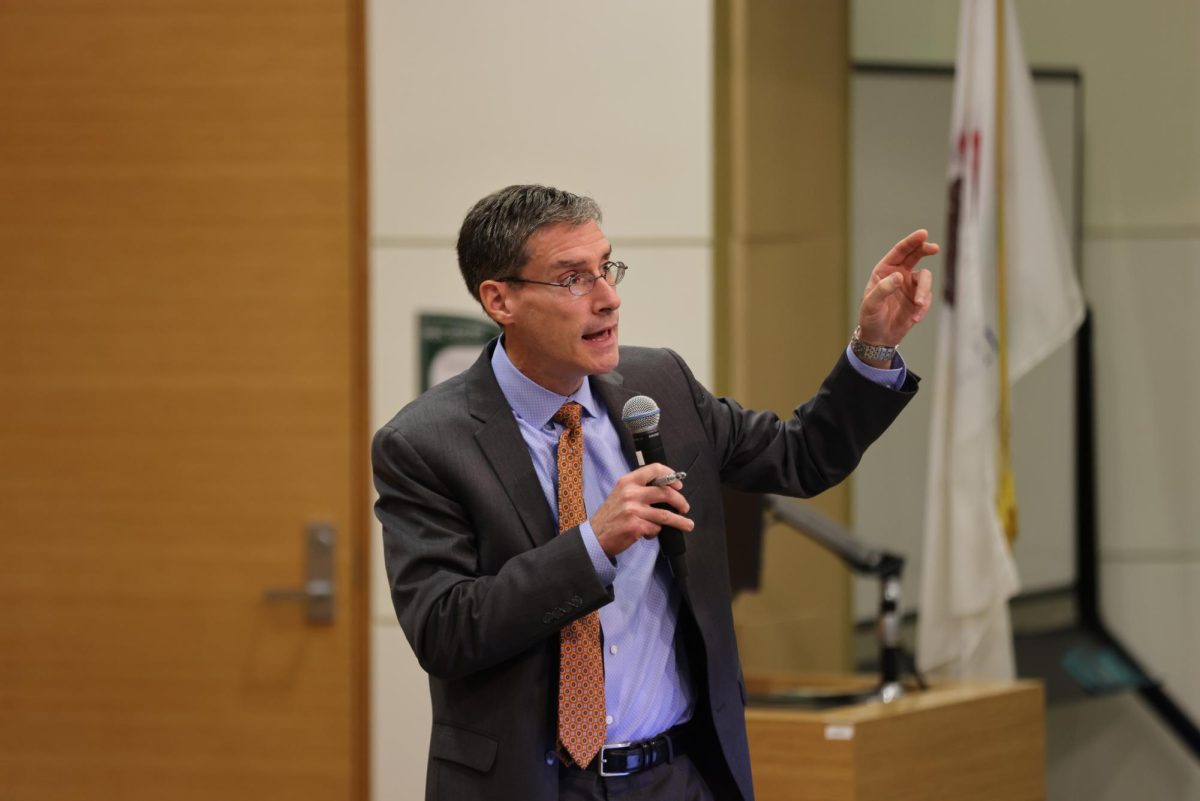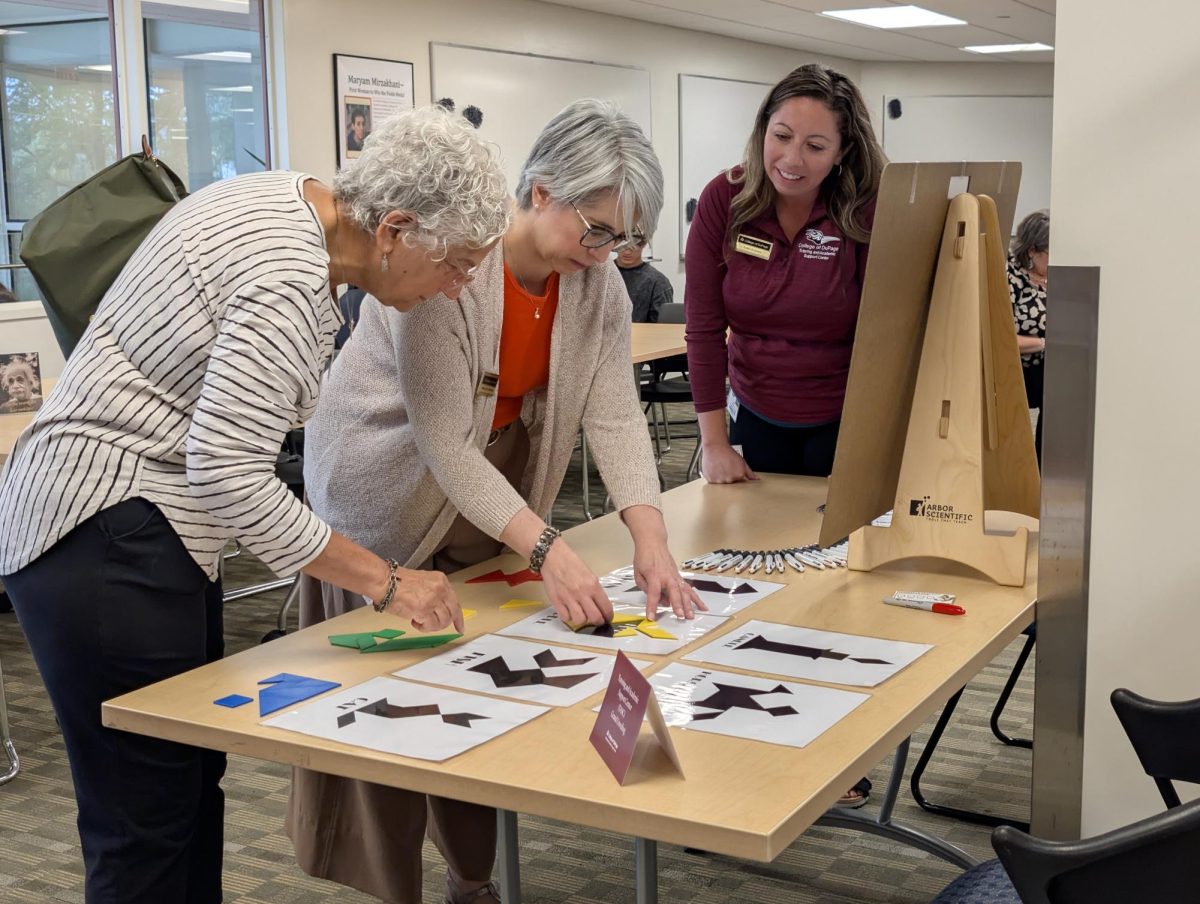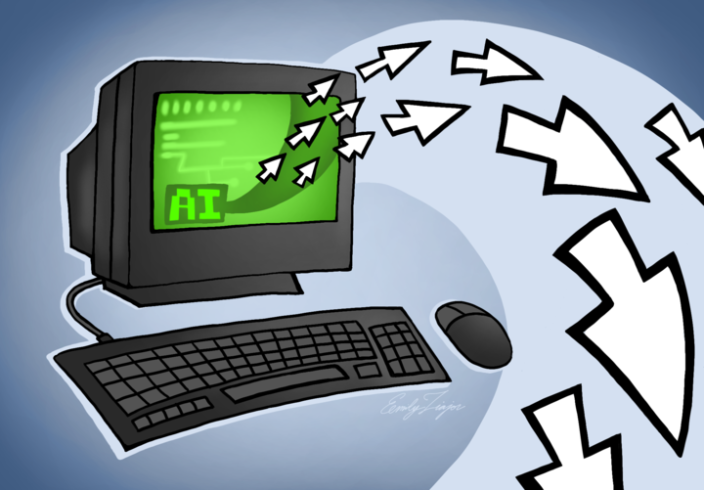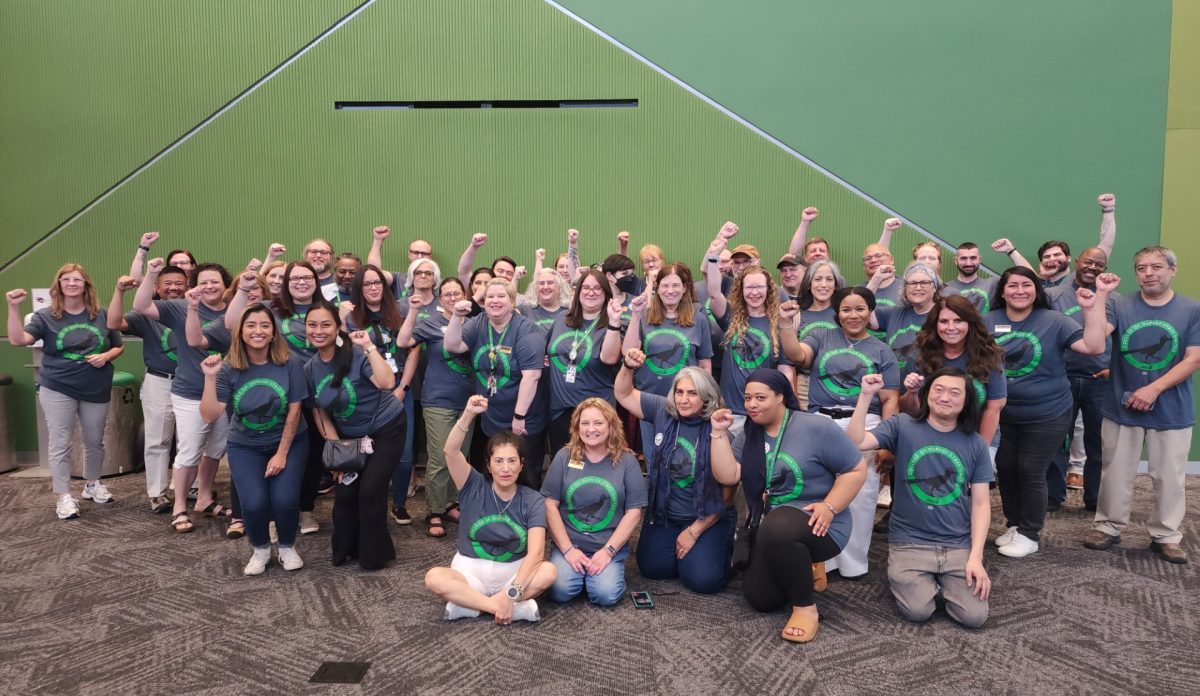In the wake of escalating global activism, there has been a noticeable shift in coffee-drinking patterns, including among college students. This change is due to the nationwide boycott of Starbucks, which is gathering momentum as an act of solidarity with the Palestinian liberation movement and in denouncement of the franchise’s union-busting tendencies.
CNN reports that the issue started when Starbucks accused Starbucks Workers United (a union formed in 2021 that represents many of its baristas) of “harming its reputation” and “endangering co-workers” because of social media posts by the union that spoke to their support of Palestine’s liberation after the Hamas attack on Israel.
Over the next few weeks, Starbucks Corporation distanced itself from Starbucks Workers United’s statements, and took legal action on Oct. 18, suing the union for trademark dilution and infringement, demanding the union stop using its trademark and pay damages.
In response, on Oct. 20, Starbucks Workers United countersued Starbucks in federal court in Pennsylvania, denying the claim they supported violence and asking to be allowed to continue to use the circular green Starbucks Workers United logo.
They also reaffirmed their solidarity with Palestine in a statement posted on X and Instagram, stating in the first line “The members of Starbucks Workers United stand in solidarity with the Palestinian people’s right to self-determination.”
The statement continues by asserting, “We condemn the occupation, displacement, state violence, apartheid and the threat of genocide Palestinians face” and condemns Starbucks for “using the humanitarian crisis to make false statements against their union and vilify them.”
The statement concludes with a call on other unions to “stand in solidarity” with Starbucks Workers United on these two issues. While it is unclear how other unions will respond to Starbucks’ specific call to action, many workers and other unions in the US and around the world are demonstrating and protesting in support of Palestine.
Some students at the College of DuPage, including Liz Michael, are participating in this movement out of concern about the corporation’s position on pressing global issues and their treatment of their employees.
“I think Starbucks has a history of virtue-signaling to get better sales, but where they send their money, and how they treat employees that share their thoughts on current issues show where their beliefs lie,” she said. “It’s just another reason to support local businesses and not a billionaire company.”
Michael’s viewpoint reflects a growing sentiment among students nationwide, as the power of socially conscious consumerism and disdain for Starbucks’ labor practices has grown exponentially.
According to a recent article by Inside Higher Ed, over the past year, student activists at more than 50 universities across the United States have been pushing administrators to end contracts with Starbucks. This protest arose in response to the accusations against the franchise of violating their worker’s labor rights, including firing pro-union employees and shutting down unionized locations.
The Guardian reports that students at the University of Washington and across the University of California system have also called for ousting Starbucks from campus. The UC Student Association has called on the university “to stop contracting with all anti-union corporations and support fair labor practices in all companies it contracts with.”
Moreover, regarding the franchise’s stance on the Israel-Palestine conflict, Starbucks is just one of many major corporations facing intense public backlash and criticism. Good Morning America reports that companies like HP, Siemens, Puma, Google and McDonald’s are all the subject of public boycotts for their strong ties and financial support of Israel.
The recent conflict between Israel and Hamas has also brought the Boycott, Divestment and Sanctions (BDS) movement into the spotlight. According to an article from MSN, BDS is “a non-violent global protest movement that uses economic and cultural boycotts, financial divestment, and government sanctions to pressure Israel to change its policies toward Palestinians.”
Reportedly, many Palestinians (and other organizations and individuals internationally) rely on BDS’s evolving list of what companies and people support Israel to know which to boycott. Technically, Starbucks is not a listed company and released a statement in 2014 denouncing any involvement with the Israeli government.
However, many individuals who follow the BDS boycott recommendations have also boycotted Starbucks for years. According to an article by Jewish Telegraphic Agency, this sentiment can be partially attributed to accusations that the former CEO David Schultz supports Israel and has a close business relationship with Prime Minister Netanyahu, whom he publicly met in 1998 after being given the Aish award for his “dramatic contributions to American society and Jewish heritage.”
He also drew criticism for remarks he made at a Seattle synagogue in 2006 regarding the rise of anti-Semitism in the Middle East, which prompted calls from Pro-Palestinan activists to boycott the franchise, citing his inflammatory and racist remarks as evidence he is anti-Palestinian.
In 2014, Starbucks also faced intense scrutiny and backlash over rumors of its involvement with SodaStream, a company that manufactures sparkling water. SodaStream is on BDS’s list of companies to boycott because “[the company] manufactures in Maale Adumim, an illegal settlement in the occupied Palestinian territory (OPT) and, as such, is deeply complicit in Israel’s violations of international law. Settlements are illegal under international law and constitute a war crime.”
Reportedly, the coffee giant was in “advanced talks” with Sodastream (a sparkling water company) about buying a 10% stake in the Israeli company at the time, although the deal did not end up going through.
And now, in response to Starbucks’s attack on their workers union’s support of Palestine, many Pro-Palestinian activists are advocating for the total boycott of the franchise.
In response to elevated public interest in BDS’s campaign, according to an article from Vox, the hashtag #BDSMovement has exploded this month on social media platforms like X and TikTok, as individuals are using the hashtag to identify brands associated with Israel and call for boycotts.
However, this sudden response in the face of the prolonged nature of the Israel-Palestine conflict has left many frustrated, with a sense that it took too long for widespread action to be taken.
Ammu Khan, a COD student with family ties to Palestine, said her family has boycotted Starbucks and organizations listed on the BDS boycotting list for years because of its perceived support for Israel and her frustration that it took so long for the public to notice and take action.
“Growing up in a very culturally Muslim family, my family has been against Starbucks since I was in 5th grade. We’ve always known that it supported Israel and where the money was going,” Khan shared. “For years, it was just us and people at our local mosque that boycotted Starbucks. And the thing with boycotts is that it is such a power-in-numbers type of deal. Before this month, no one felt like anyone was getting somewhere or doing something because they had such a small number boycotting it.
“Overall, it’s very reassuring and encouraging that the everyday person is trying to make a difference by boycotting this Goliath-like company,” Khan said. “I think it’s giving people a lot of hope that maybe an average citizen can have an impact on such a huge franchise.
“But,” she noted, “it’s sad, the fact took this much damage and so many years when no one cared or heard about it or took it seriously until such catastrophic events happened. And that’s when the general population started to pay attention.”
Now that the general public has started to ‘pay attention,’ it remains to be seen if these boycotts create a lasting impact on Starbucks. As the boycott is still in its early stages, it is difficult to quantify a change in stock price or isolate its influence in statistics from a quarterly company report.
Despite the extensive series of boycotts Starbucks has weathered over labor rights and accusations of racism and discrimination, Starbucks remains one of the largest and wealthiest conglomerates in the world. In a 2018 article for Business Insider, CEO Kevin Johnson addressed the boycott occurring at the time, stating that they “had not seen an impact on comp sales.”
Noah McBrien, a COD student who works at the Starbucks in Lisle, shared his observations on customer behavior and coffee-drinking behaviors since the boycott began.
“Since the boycott began in October, I’ve not noticed any differences in terms of a decrease, like I haven’t noticed not getting drinks or customers just waiting in line without buying things,” McBrien said. “I have seen an increase due to all the Christmas drinks and items coming out, but [seemingly] nothing related to the protest has changed customer behavior.”
When asked about his opinion on the potential efficacy of the boycott, McBrien said “I see this sort of passing. When we see these kinds of controversies, they usually come up for maybe a day or two, lasting maybe a week and then they sort of just go away. They may affect an organization— like usually, boycotts are effective in that they give an organization a negative reputation, which causes stock prices to lower, but the boycott itself doesn’t do that. And I would say, given how often these kinds of controversies come up for any company, I wouldn’t say that it will [ultimately] affect Starbucks.”
According to an article by Newsweeks, many customers that initially participated in the boycott have already ‘given up’ due to their ‘boycott fatigue,’ highlighting the potential the moment has to be ultimately ineffective should it fizzle out.
However, as students continue to protest against Starbucks on college campuses, there have been a few instances of measurable success. According to Insider Ed, students at Cornell University received official word from President Martha E. Pollack in August that the Ivy League institution will not renew its contract with Starbucks when it comes up in 2025.
For more information about the call to action from Palestinian Trade Unions, check out the Oct. 18 article on the International Action Center website.


